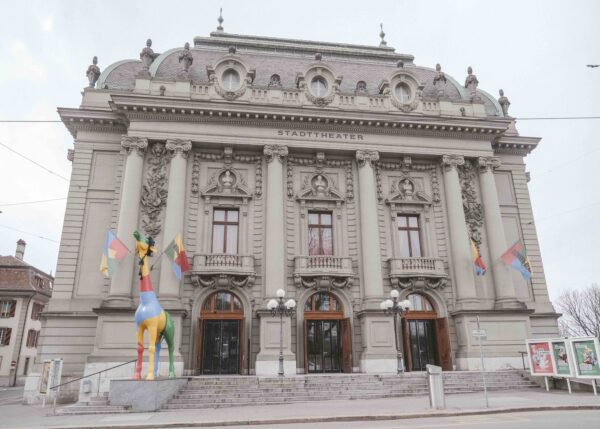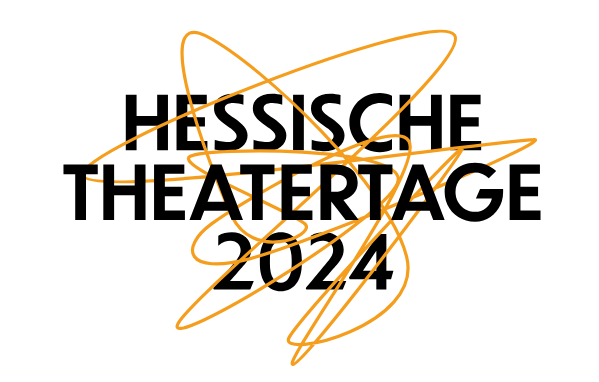8.10.23
Statement

What is the position of the management of the Hessian State Ballet and the State Theaters in Darmstadt and Wiesbaden with regard to the accusations made on October 7th 2023 by Wiebke Hüster in the FAZ on the occasion of the premiere of Ohad Naharin’s “Last Work” in Staatstheater Darmstadt?
In his choreographies Ohad Naharin celebrates with dancers a dizzying variety of feelings and thoughts. Wiebke Hüster wrote on his 70th birthday in 2022: “Watching Naharin’s dance is like diving into his stream of consciousness, in which fragments of our collective memory of movement are rephrased and joined together in such a way that we recognize ourselves in these dances. Suddenly it makes sense that we are so torn. That we want to form a community and cannot live without a community, but that it is in danger of breaking apart.” No one, with heart and brain, who experiences a dance piece by Ohad Naharin, can seriously believe that anything about it can be understood as support for Russia’s current regime. We are not naïve: of course, a regime can misuse the names of great artists. But we also believe in the fascinating, civilizing power of the beauty of art, which Wiebke Hüster so vividly described in 2022 with Ohad Naharin.
Every single performance of a choreography by Ohad Naharin in Russia contradicts Putin’s values and is understood by those who also stand for human rights and diversity in Russia. Should people in Russia not be allowed to see dance pieces that condense diversity, humanity, human fragility into art because their regime, their country is waging a horrific, criminal war of aggression against Ukraine? Are we going to attack writers who do not stop translating and selling their books in Russia?
We have no reason to doubt the moral integrity of the great artist Ohad Naharin. Should we now engage artists according to how much moral gratuitousness they have demonstrated through symbolic actions? Or rather artists who have spent their entire lives seeking collaboration with those who stand for human rights and against totalitarianism and violence, and whose art bears witness to this?
The question of whether a Western choreographer extends or cancels his performance rights for Russia can certainly be discussed in a differentiated way. Many artists who have to decide this are not making it easy for themselves. But does it make anything better to judge these artists morally from a safe distance? Or does the competition in moral self-righteousness only serve to make oneself feel better? Shouldn’t we better discuss realpolitik and write about what would really help against this war: doing everything to buy less energy from Russia. The immense billions paid for our energy strengthen the regime and the war, not performances of Ohad Naharin’s choreographies in Russia.
Today our thoughts and solidarity are with the people of Israel, with the relatives of artists and staff of our theater, with the Batsheva Dance Company and Ohad Naharin. The premiere of “Last Work” allowed us to experience how much of this world Ohad Naharin has absorbed into his art as a clairvoyant artist and why we invited Ohad Naharin and “Last Work” for the Hessian State Ballet. We are happy that the Hessisches Staatsballett is allowed to dance “Last Work”.
Why does the Hessisches Staatsballett persist in performing a choreography by Marco Goecke?
Of course, the Hessian State Ballet and the State Theaters of Darmstadt and Wiesbaden condemn the physical attack by Marco Goecke on the journalist Wiebke Hüster. We also condemn this as an attack on the freedom of the press, which is to be respected as a high good. We find it right that Marco Goecke has been and will be punished legally and professionally for this. We find it right that he had to give up the position of responsibility as ballet director in Hanover. The fact that people can repent, change and improve is central to our legal system and our view of humanity. For this, punishment should be appropriate. The goal of punishment is therefore not revenge but resocialization and improvement. We consider this to be an essential achievement of civilization. Many great works of art that we bring to the stage are about this achievement and about the human ability to transform. To continue to punish artists backstage at the same time does not correspond to our values.




